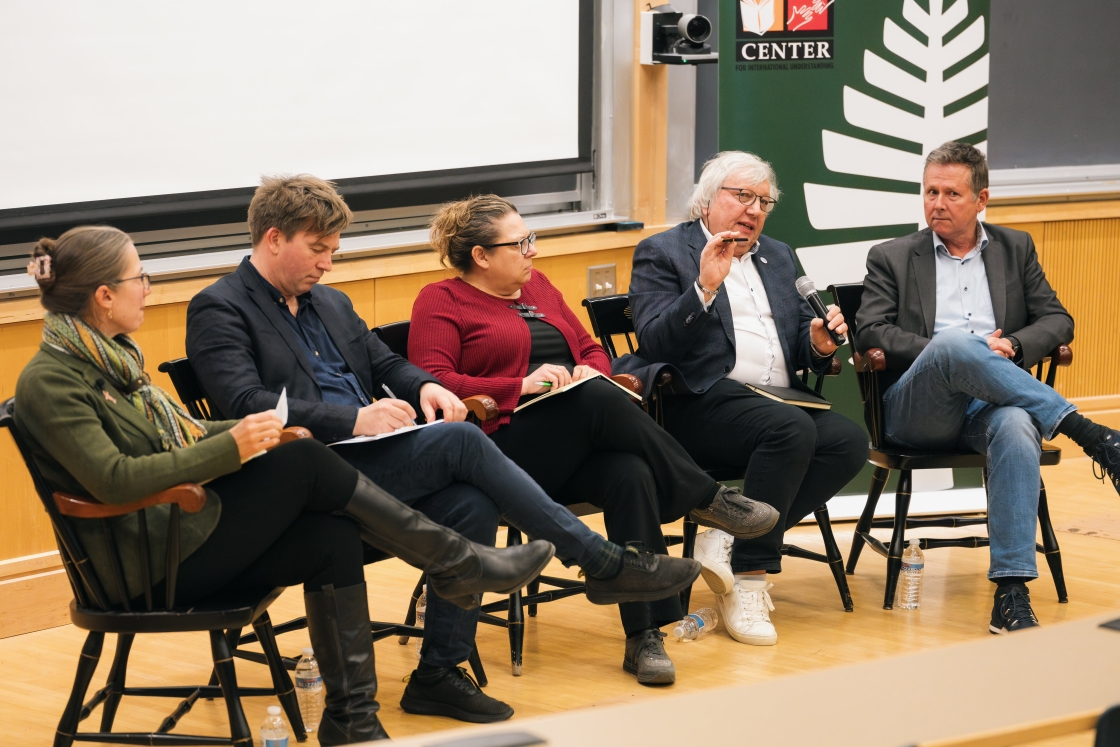At next week’s 2019 Leila and Melville Straus 1960 Family Symposium, top leaders from the world of international diplomacy and security will gather at Dartmouth for two days of talks on the future of the U.S. relationship with the Arab monarchies of the Persian Gulf.
The June 24-25 symposium, hosted by the John Sloan Dickey Center for International Understanding, will bring together foreign policy scholars and former leaders from the U.S. State Department, military, and White House for high-level, closed-session talks.
The symposium will conclude with a public panel discussion featuring Jason Bordoff, former White House adviser on energy and climate and founder of the Center on Global Energy Policy at Columbia University; Anne Patterson, former assistant secretary of state for Near East affairs and former U.S. ambassador to Pakistan and Egypt; and Jeff Feltman of the Brookings Institute, former under-secretary-general for political affairs at the UN and former assistant secretary of state for Near East affairs.
The public discussion, held from 4:30 to 6 p.m. on June 25 in 041 Haldeman Center, will be moderated by Daniel Benjamin, the Norman E. McCulloch Jr. Director of the Dickey Center and a former State Department coordinator for counterterrorism.
“Right now, there is no hotter spot on Earth than the Persian Gulf. The level of tension with Iran is as high as we’ve seen it in decades,” says Benjamin. “Even setting that aside, our relationships with some of the countries in the region, with Saudi Arabia in the forefront, are incredibly challenging, as the Senate’s vote on President Trump’s arms sales demonstrates. So it’s great that we can bring together a group of the top policymakers and scholars of the region to discuss the future.”
Among other attendees of the two days of policy discussions will be Brett McGurk of the Hoover Institution, former special envoy for Iraq and Syria; retired Gen. Joseph Votel, former commander of U.S. Central Command; Robert Malley, president of the International Crisis Group and former White House Middle East coordinator; and Jake Sullivan, former State Department director of policy planning and a Dickey Center distinguished fellow.
“We have been anchored in the Persian Gulf for a long time, but the policies being pursued by Crown Prince Mohammed bin Salman and others put a question mark on what lies ahead, so this is a timely discussion with a remarkable group of people,” says Benjamin.
The Dickey Center hosts the annual Straus 1960 Family Symposium, which is dedicated to producing the best understanding and analysis of central international issues, with collaborative research on complex problems and a concentration on topics such as war and peace studies, conflict resolution, international governments, and human rights.
Past Straus Symposiums have focused on threats to global health work, an atrocities early warning system developed at Dartmouth for the U.S. Holocaust Memorial Museum, and an international support conference responding to the devastating 2015 earthquake in Nepal.
William Platt can be reached at william.c.platt@dartmouth.edu.


